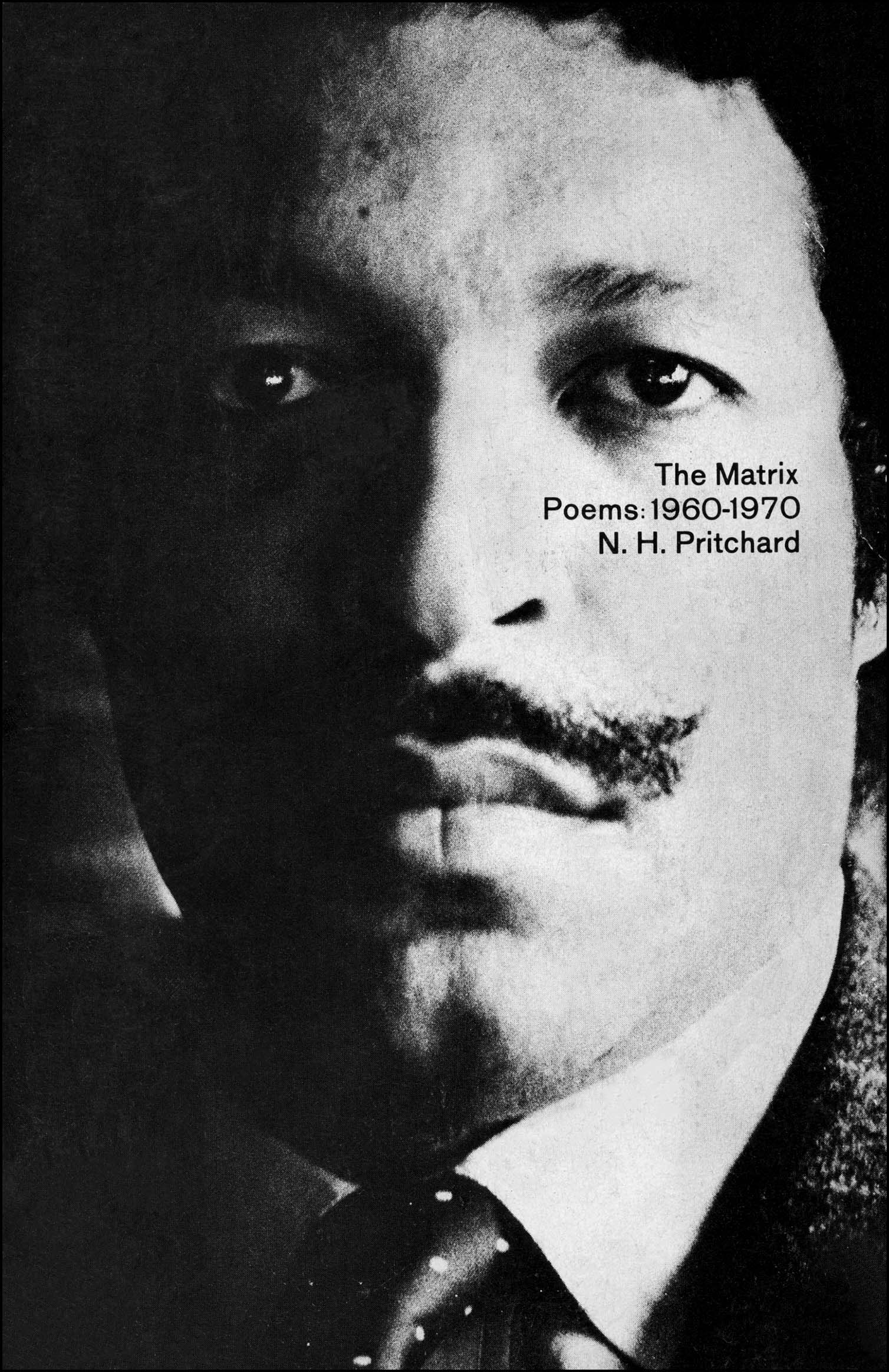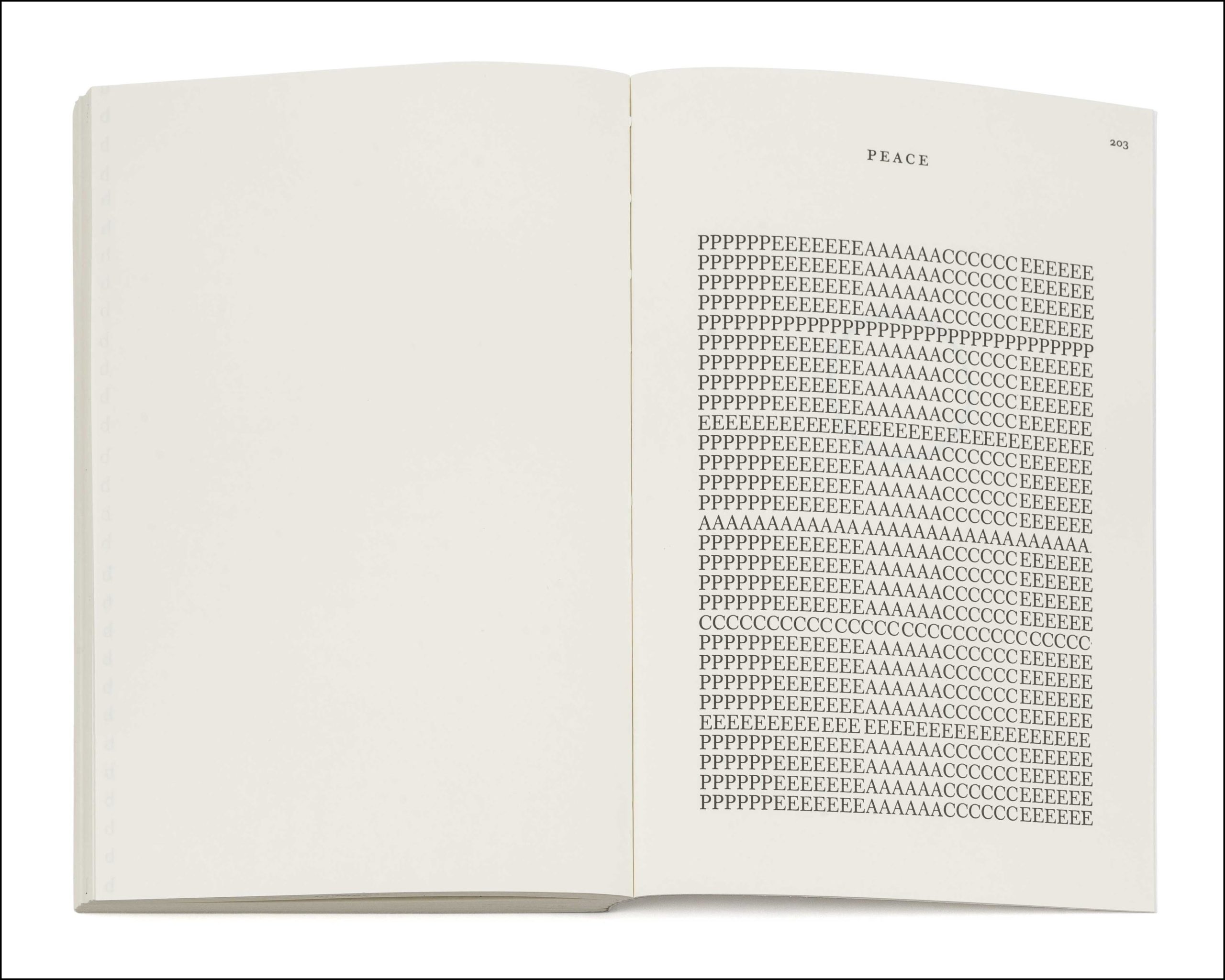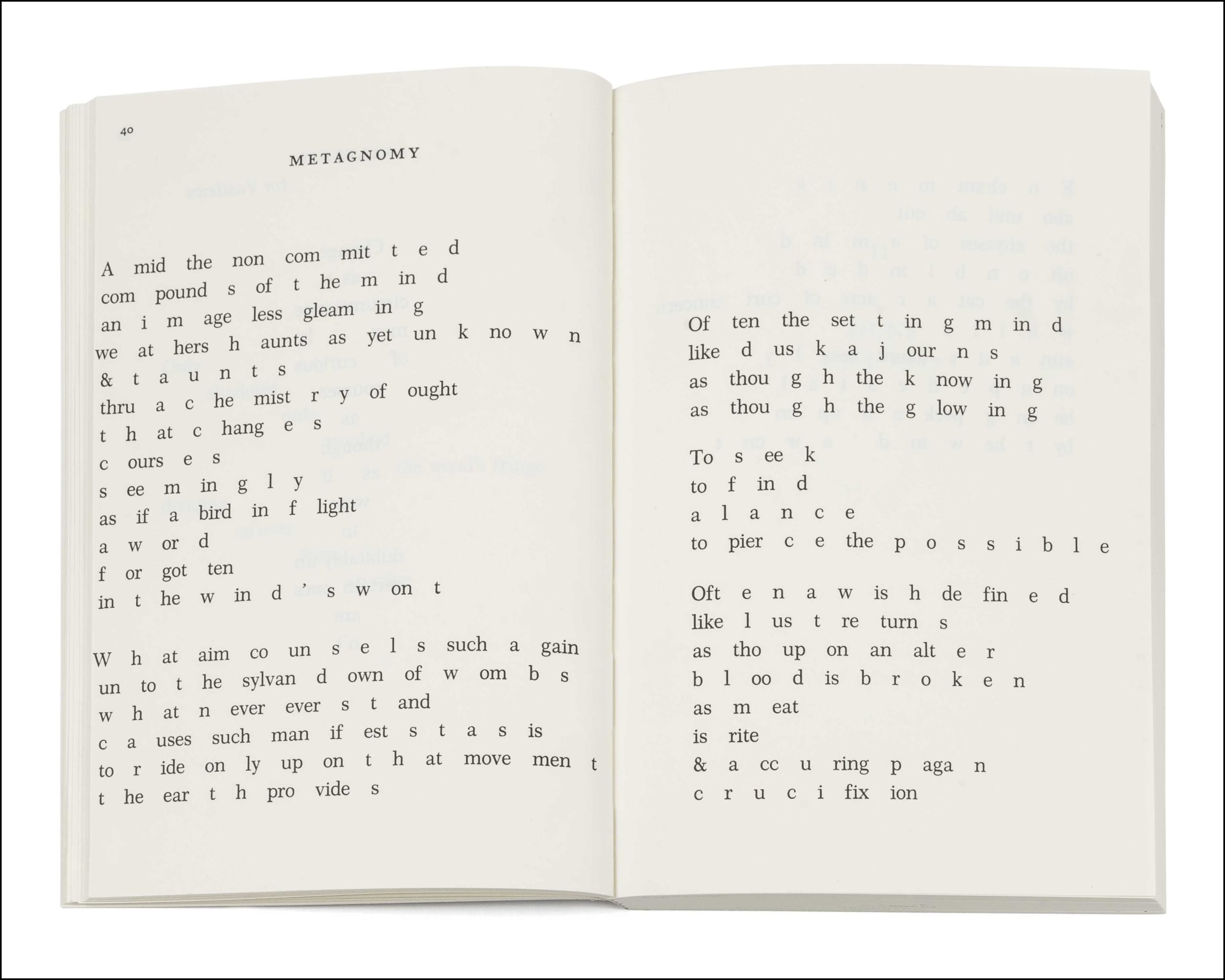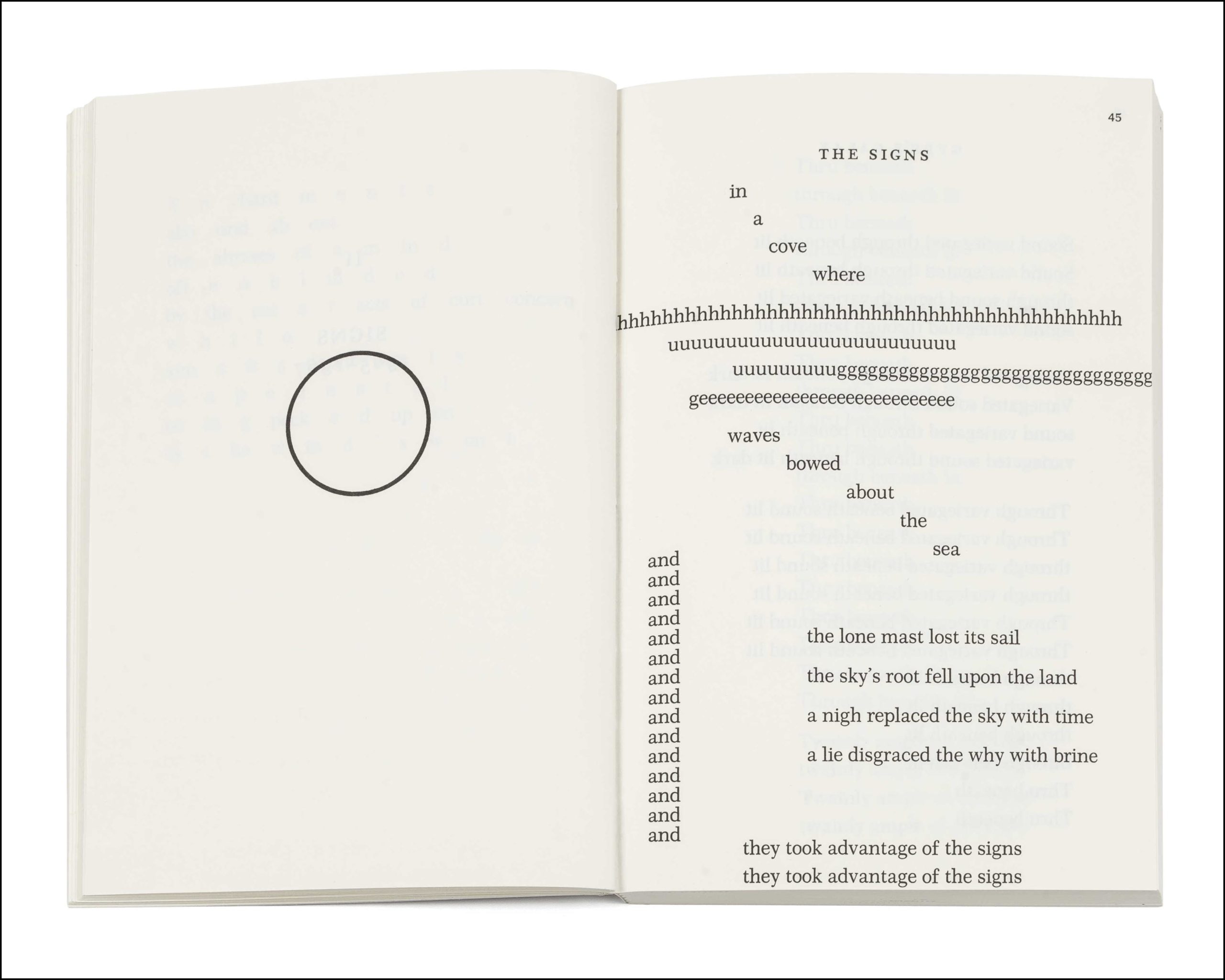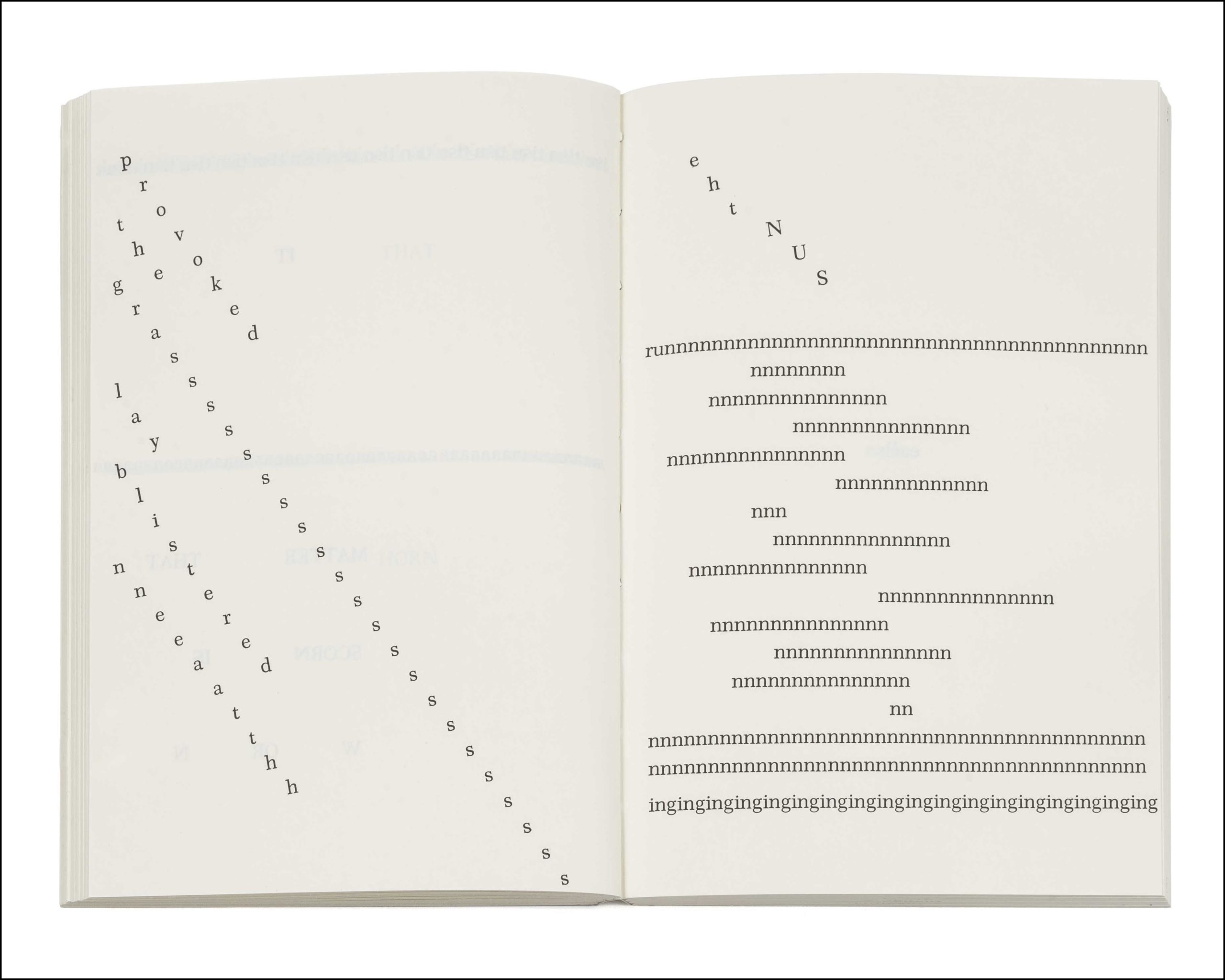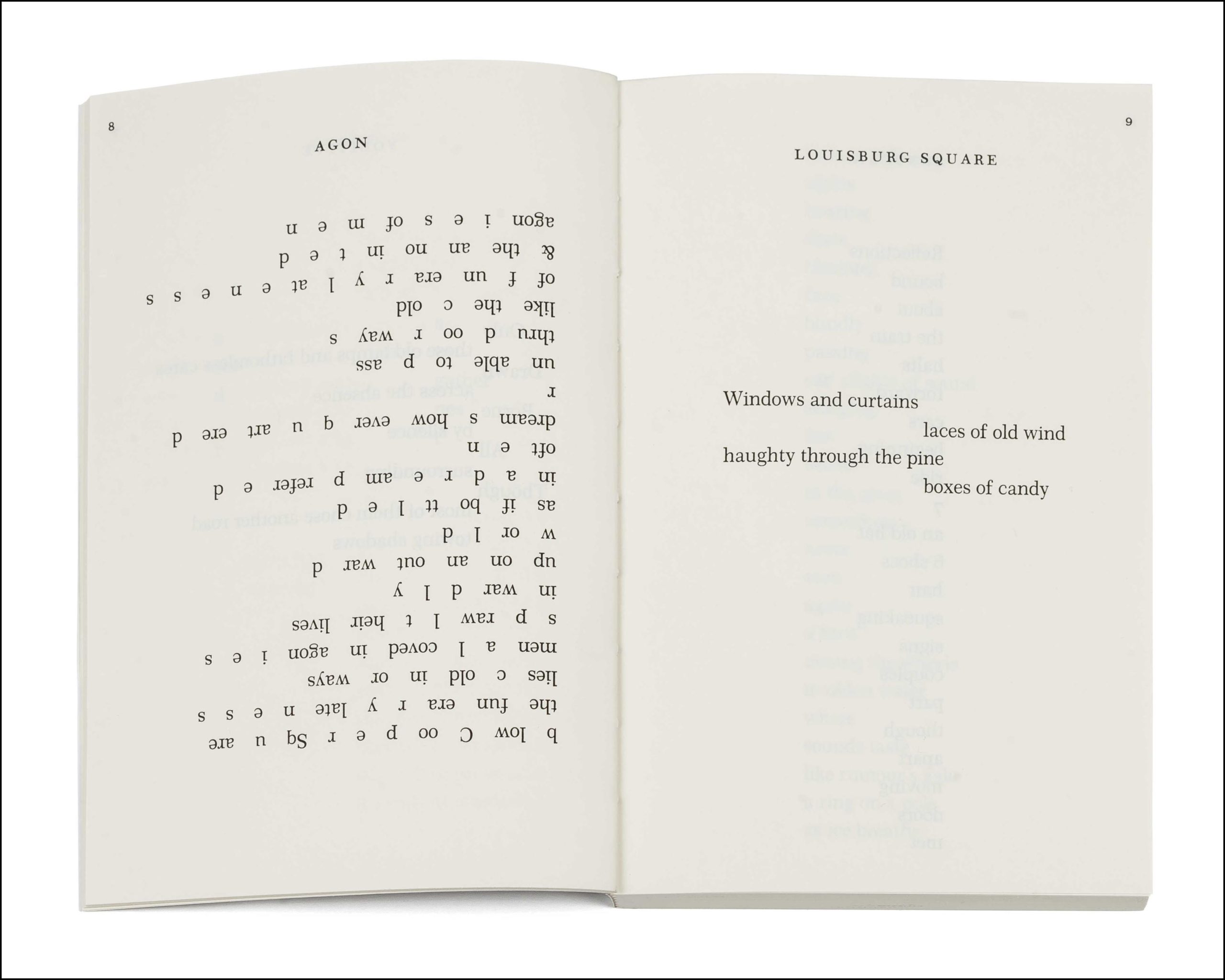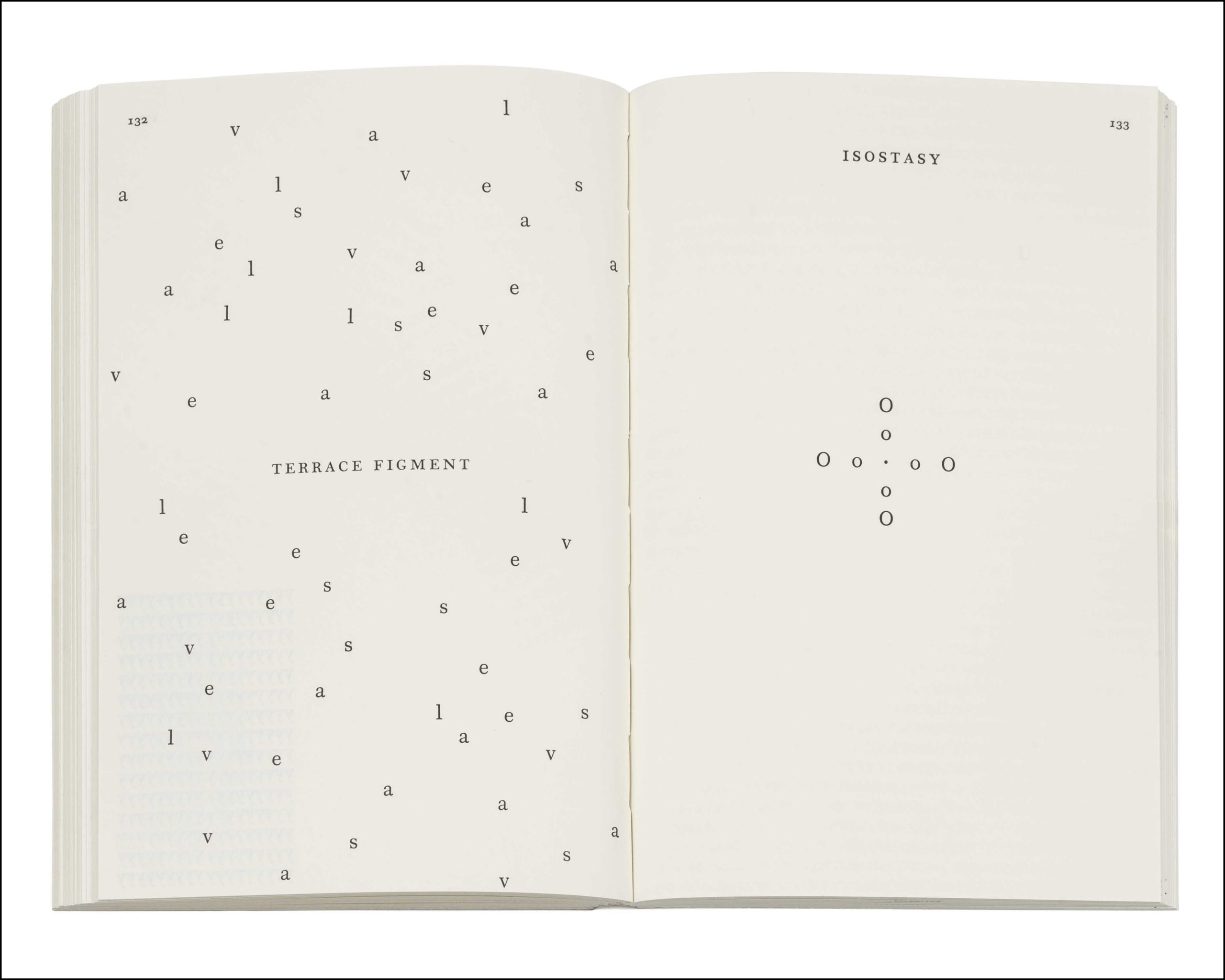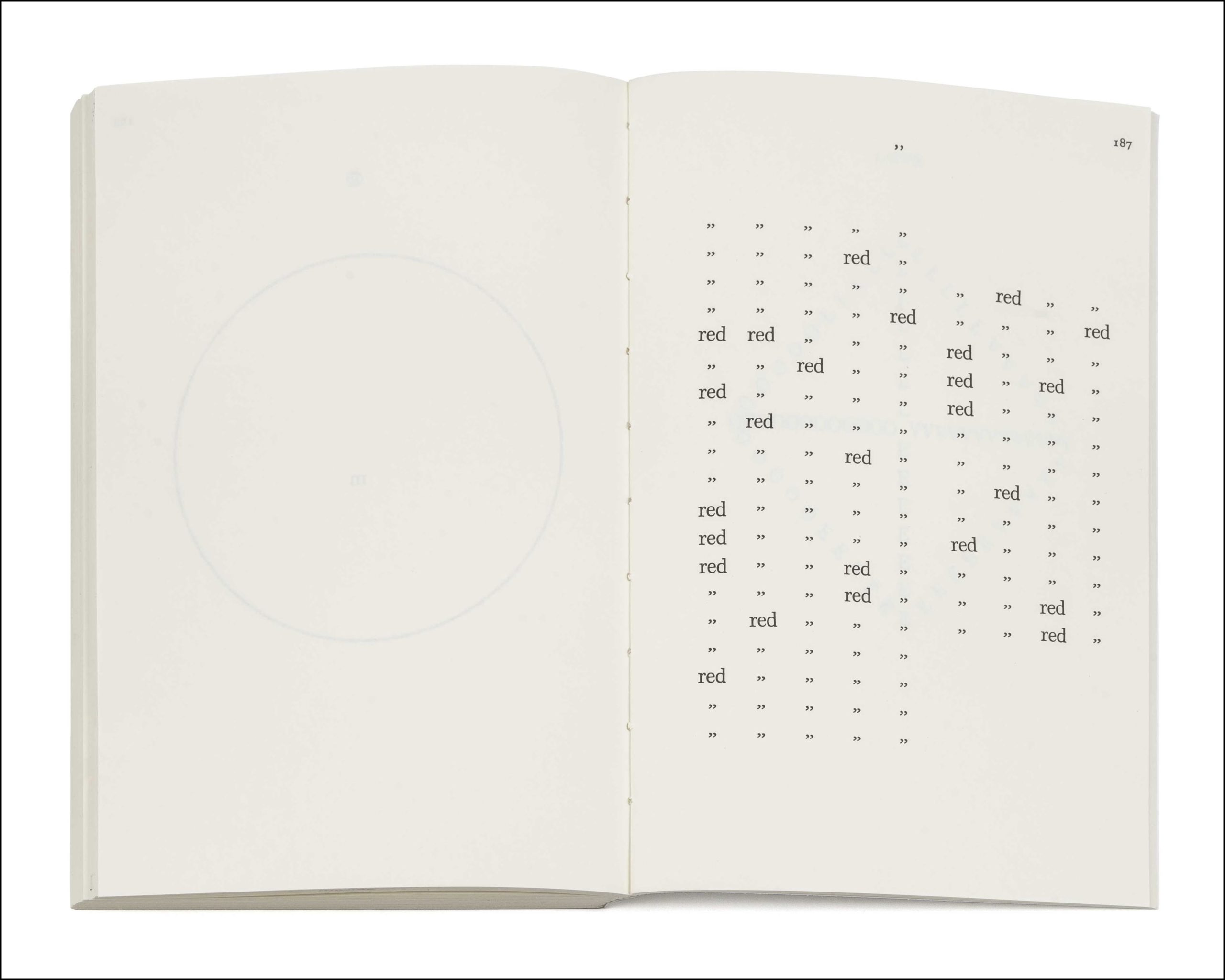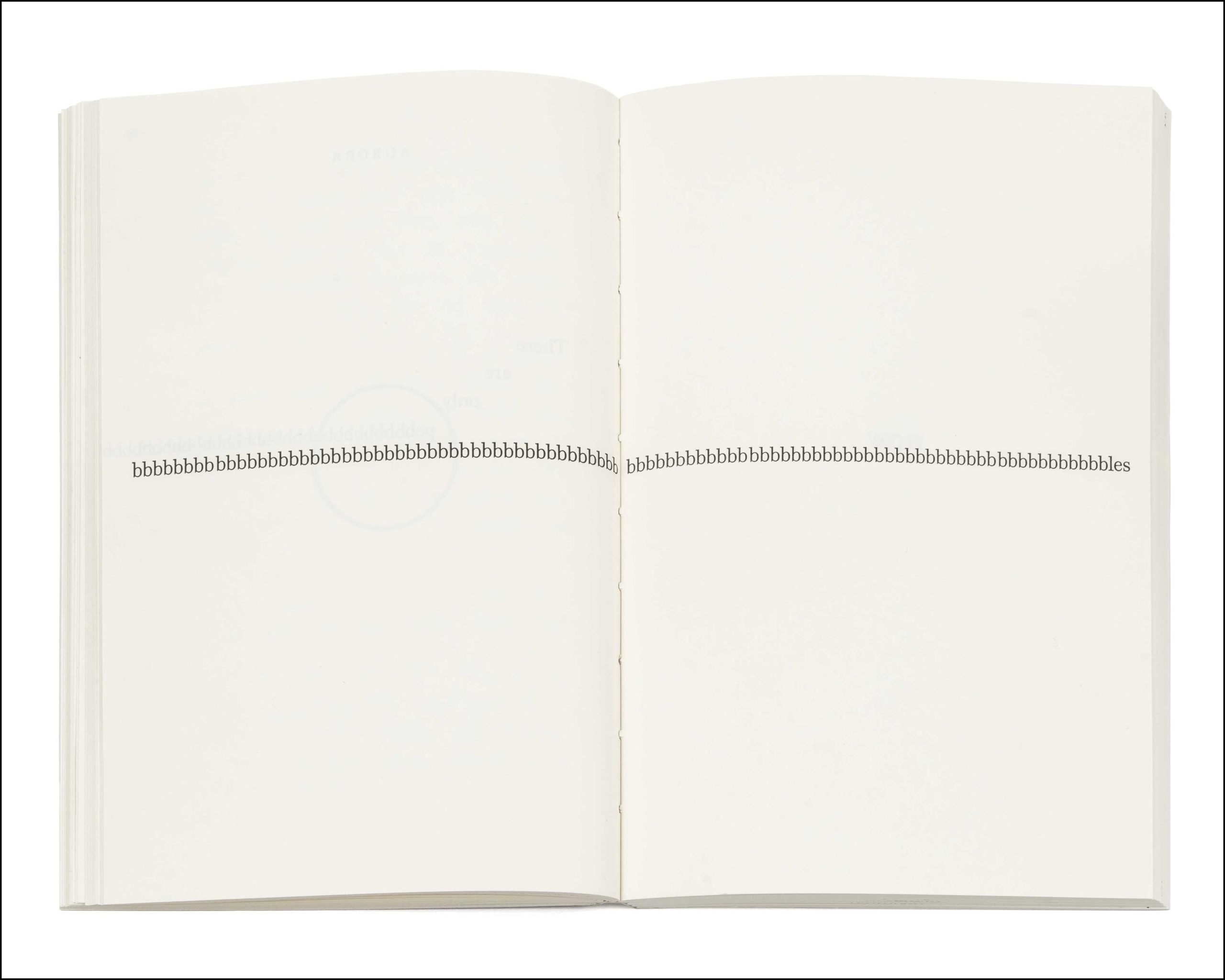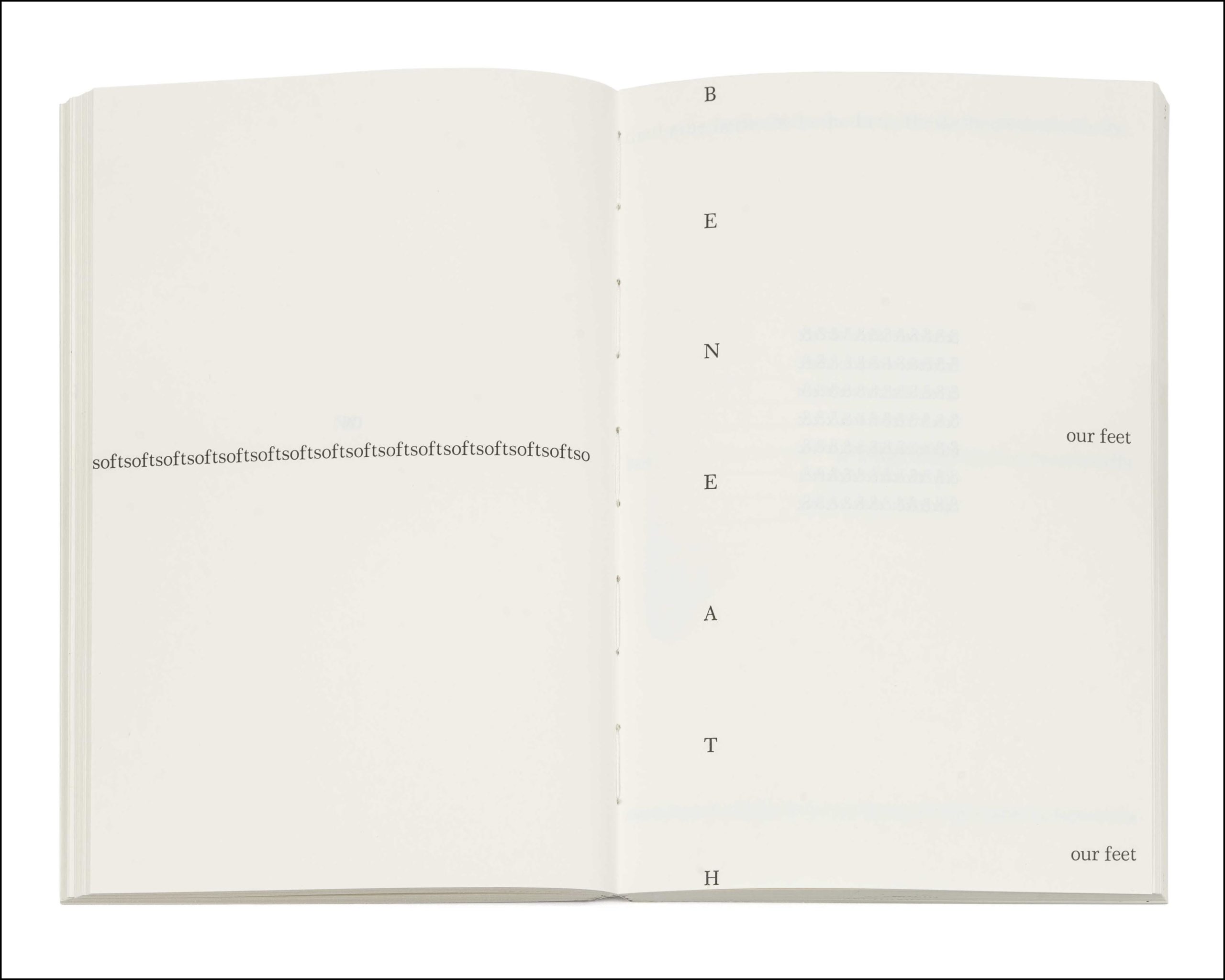“Here’s a truth to which the black experiment is especially foregiven: “words are ancillary to content.” The converse is also true, indicating mutual aid and mutual trouble. When words and content get together, there’s enough room in the vast, infinitesimal blur not in between them for poetry to make its dispersive, displacing way. Norman H. Pritchard loves that non-Euclidean neighborhood. He keeps bullet time there, after hours, in a club, which is an open cell, called The Matrix. Welcome to this “huge/entering” of concrete breath—unprecedented, unsurpassed.”
-Fred Moten
Despite being published by no less a press than Doubleday, Pritchard’s Matrix slipped too soon from view. In the ensuing years, finding a rare copy was like stumbling across a backdoor in the hyperlinking system allowing passage between our now and the then of Pritchard’s Matrix, a then when major commercial houses would publish oracular, “experimental” verse. Like his book, Pritchard receded from view within the world of literary criticism, but his remarkable book persisted never-the-less. Here it is again, like an appearing-disappearing monolith in the desert, ominous and numinous at the same time.
-Aldon Lynn Nielsen
These poems are “of our time” … FREE souled … elements of Gertrude Stein … universal preoccupations four-squarely said.
-Allen Ginsberg
There was nothing like N.H. Pritchard’s Matrix when it was first published in 1970 and there’s nothing like it now. This wild book of poems is instructive on the materiality of language—that its physicality can be stretched, and if that’s true so can meaning. One is forced into encounter with language that is at once artificial, constructed, and social. Matrix is playful, lyrical, leaping, experimental, and visual—a collage resembling the innovative nature of Black beingness itself. With this re-publication, I hope that Pritchard takes his rightful place as a forebearer in the radical Black imaginative tradition.
-Dawn Lundy Martin
Language processed, compressed, exhausted, unknown. N. H. Pritchard recodes our reading.
-Adam Pendleton
Cover to cover, this is an endlessly rewarding visual masterpiece. There are innumerable matrices for the eye and mind within The Matrix, one of the great works of postwar US literature—long overdue for republication.
–Paul Stephens
Witness from an evacuated, but persistent, site of enunciation even more forcefully informs N. H. Pritchard’s work, which can seem like a form of ghostwriting: writing written for another, or writing that points to the effaced speaking subject. […] For Pritchard, “words are ancillary to content”; that is, words (or something in the words) are vehicles to some more fundamental but ambiguous and ephemeral meaning related to the opacity of language and experience. […] If concrete poetry generally works by canceling referentiality, Pritchard’s unsaying begins from solid ground that it decomposes. Pritchard uses concrete poetry’s generic cancellation of referentiality as a kind of lever on political notions of black concreteness and black genius, unsaying the very conditions that would authorize speech.
-Anthony Reed
The Matrix Poems: 1960-1970
N. H. Pritchard
The Matrix by Norman H. Pritchard (1939–1996) gathers a selection of the Concrete and Black Arts poet’s work from 1960 to 1970. The seventy-one poems collected here might be regarded, as Charles Bernstein has written, as “sound” poems, being tethered not only to the literature of the Black Arts Movement but also to jazz culture and urban life in New York. Drawing as much from the visual arts and concrete poetry as from sound-based experimentation and music, Pritchard utilized the simple tools of spacing and typography to create syncopations, vibrations, and musical rhythms. What emerges is nothing less than a self-contained system of mimetic codes that challenge modernist modes of perception and representation. Formally innovative and anticipating what Michael Riffaterre would come to call the semiotics of “ungrammaticalities,” the book is a syntactical and visual experience in repetition, stutters, and structure.
Born and based in New York City, Pritchard was trained in visual arts and art history at New York University and Columbia University. As a member of the Umbra group (1962–65)—a collective of young Black writers that included Steve Cannon, Thomas C. Dent, David Henderson, Calvin Hernton, and Lorenzo Thomas—he met with fellow members in Manhattan’s Lower East Side to read and discuss writing and politics. They channeled their sense of urgency in developing and promoting Black culture into the literary magazine Umbra. Following the group’s dissolution, Pritchard continued to be involved in New York’s art, music, and film worlds in the late 1960s. The Matrix was published by Doubleday in 1970, marking one of only a handful of books on concrete poetry to be published by a major American publishing house. His second and final book Eecchhooeess was released by New York University Press in 1971.
If Pritchard’s work testifies to the Black poetics of “broken witnessing,” it is also deeply philosophical and spiritual. “I feel that there’s only one reality, and that reality is God,” says Pritchard in an unpublished video from 1981. “Everything else is actual—or what I call ‘transreal.’ In other words, everything is transreal except God. Trans meaning through, across, within, into within.” In a 1969 letter to fellow Umbra member Ishmael Reed, Pritchard writes: “Transreal is a word which visited me in the fall of 1967 while making initial probes into a book which I call Origins: A Contribution to the Monophysiticy of Form. My ‘definition’ is: Transrealism = O.”
While leaving it open to interpretation, “transrealism” was a vector through which Pritchard organized a host of collaborations—in March 1972, for instance, the poet hosted an event in New York called “The End of Intelligent Writing: A Transreal Awakening,” which featured artists such as Vito Acconci, W. Bliem Kern, and Richard Kostelanetz. Describing Pritchard’s work in terms of “ironic materiality,” Reed has remarked: “At the limit, Pritchard’s self-undermining poems ask us whether poetry needs words at all.” Indeed, his is a poetics of both anti-transcendence and revelation.
Norman Henry Pritchard was born in New York City in 1939 and studied at New York University and Columbia University. His work has been published in two collections: The Matrix Poems: 1960–1970 (1970) and Eecchhooeess (1971). His poetry was featured in the journals Umbra and The East Village Other, performed on the jazz poetry compilation New Jazz Poets (1967), and anthologized in The New Black Poetry (1969) and In a Time of Revolution: Poems from Our Third World (1969). Pritchard taught poetry at the New School for Social Research and was a poet-in-residence at Friends Seminary. He died in eastern Pennsylvania on February 8, 1996.
224 pages
5.4 x 8.2 inches
Paperback
March 2021
ISBN: 9781734489798
—
Co-Published with Ugly Duckling Presse
Managing Editors: James Hoff and Matvei Yankelevich

